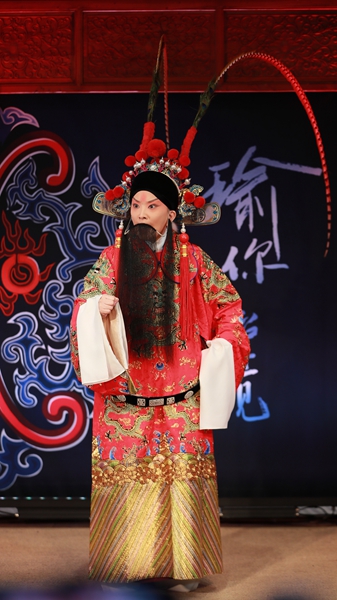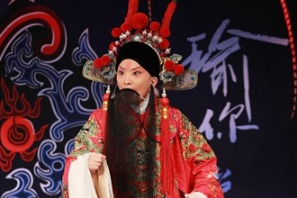Artist brings traditional spectacle to younger audience


The award-winning artist has been working with Shanghai Jingju Theatre Company since 2001.
"Peking Opera is the essence of Chinese culture. It should be fun. We just need to offer people a way to learn about it," says Wang, adding that she has been thinking about producing a show about Peking Opera since 2018.
"What matters is how we present Peking Opera to the audience, especially the younger viewers.
"I have been thinking a lot about what kinds of stories we should tell and knowledge we should impart in the show. They should be professional, easy-to-understand and interesting."
Wang, also one of the planners of the show, sees youth as a vital, moving force to rejuvenate the old art.
"Having the young generation fall in love with Peking Opera is what I always want," she says. "Their participation will keep the old art form alive."
Due to the COVID-19 outbreak, the show was recorded in a tea house without a live audience, which was a fresh experience for Wang since she usually plays to a full house.
To prepare for the show, Wang read books, combed through historical materials and consulted experts. To attract more young people, she also tried to pick up lots of words that are popular among the young, such as "freestyle" and zihei (self-mocking).
The show went online, coinciding with the broadcasting of the new TV show, Winter Begonia, which is about a Peking Opera artist set during World War II. The 48-episode series has gained increasing popularity on Chinese social media.
"The scenes about Peking Opera, from costumes to real performances onstage, impressed me. I am glad that more and more young people have become interested in the old art thanks to the TV drama," says Wang, who also combined elements of the TV drama into her show to explain and demonstrate detailed information about Peking Opera.
Because of the COVID-19 outbreak, Wang has had to postpone her performances, which focus on displaying the tradition of Peking Opera master Yu's classic works.



































